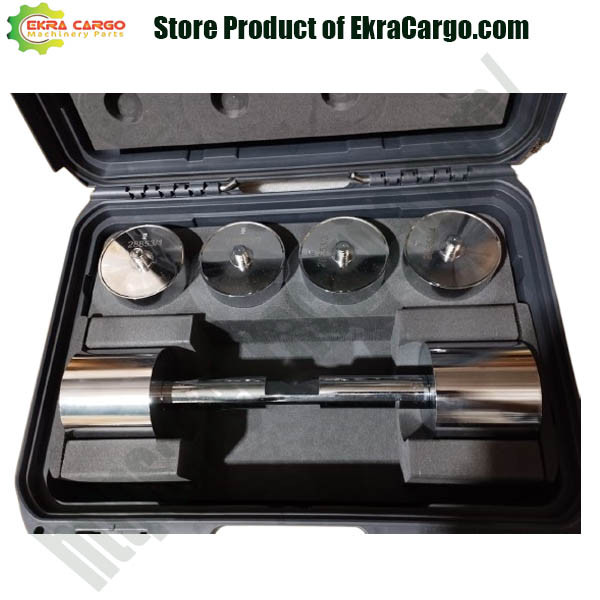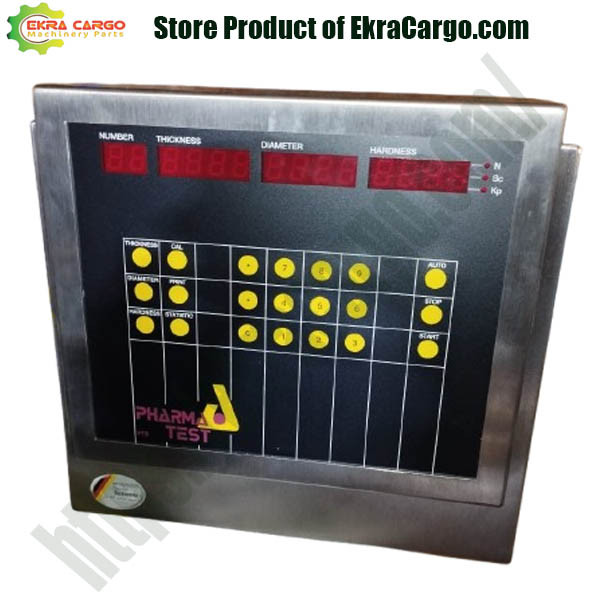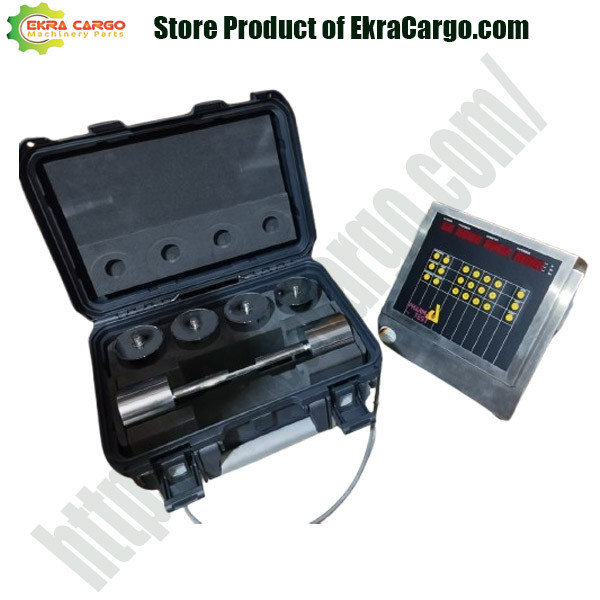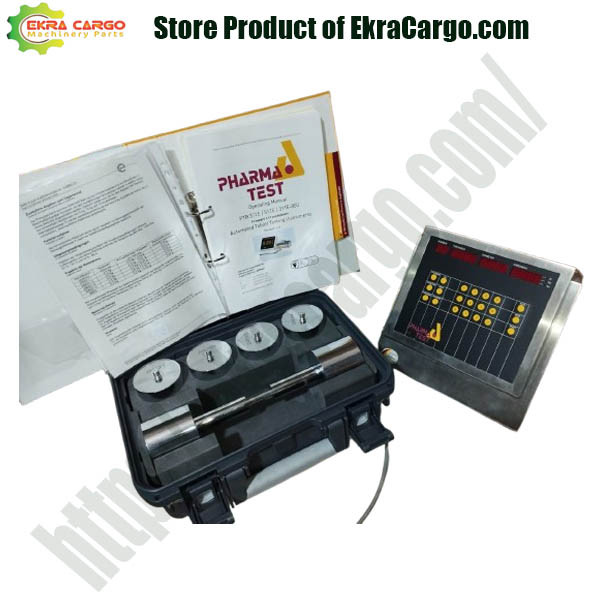
The Legacy of the Monsanto Tablet Hardness Tester and the Rise of Modern Automation
In the world of pharmaceutical manufacturing, quality
control isn't just a step in the process—it's the bedrock of patient safety and
product efficacy. For decades, the name Monsanto Tablet Hardness
Tester was synonymous with this critical phase of testing. This
robust, manually operated instrument was the workhorse of countless quality
control labs, setting the initial standard for measuring a tablet's resistance
to crushing.
But as the industry evolves towards greater efficiency, data integrity, and precision, the limitations of manual methods become apparent. This article delves into the important legacy of the Monsanto Tablet Hardness Tester, explores why modern labs are upgrading, and introduces you to the next generation of automated tablet testing solutions that can transform your quality control operations.

Click here to view the product and request a quote today!
A Nod to History: What is the Monsanto Tablet
Hardness Tester?
Before the
advent of digital interfaces and automated data capture, the Monsanto
Tablet Hardness Tester was the go-to instrument for determining
tablet hardness. Its design was elegantly simple yet effective. The operator
would place a tablet between a stationary anvil and a moving jaw. By turning a
handwheel, force would be applied to the tablet until it fractured. A
calibrated spring mechanism and a scale would then display the hardness value,
typically in Strong-Cobb Units (SCU) or Kiloponds (KP).
This instrument
provided a crucial piece of the puzzle. Tablet hardness directly influences:
·
Friability: How well a tablet withstands abrasion and chipping during
packaging and shipping.
·
Disintegration & Dissolution: How quickly a tablet breaks down
to release its active pharmaceutical ingredient (API) for absorption.
·
Stability: Ensuring the tablet maintains its integrity over its shelf
life.
For its time,
the Monsanto tester was a revolutionary tool that brought a quantifiable
measure to a critical quality attribute.
The Limitations: Why Move Beyond the Classic
Tester?
While the
Monsanto Tablet Hardness Tester laid the foundation, it comes with inherent
challenges that can hinder a modern, high-throughput pharmaceutical lab:
1. Operator Dependency and Human Error: The results are highly dependent
on the operator's technique. The speed at which the handwheel is turned can
influence the fracture point, leading to variable results between different
technicians.
2. Lack of Data Integrity: Manual recording of results on
paper is prone to transcription errors. In an era governed by strict FDA 21 CFR
Part 11 and ALCOA+ principles, this is a significant compliance risk.
3. Time-Consuming and Labor-Intensive: Testing a single batch of tablets
requires testing multiple individual units. Manually testing and recording each
one is a slow process, creating a bottleneck in the release cycle.
4. Limited Data Output: The instrument provides only a
hardness value. It does not capture additional data points, such as the force
profile or the precise point of fracture, which can be valuable for formulation
development.
5. Calibration Drift: Mechanical springs can lose
calibration over time and with frequent use, leading to inaccurate readings if
not meticulously maintained.
The Evolution: Embracing Automated Tablet
Testing
The
pharmaceutical industry's shift towards Quality by Design (QbD) and continuous
manufacturing demands instruments that are not only accurate but also efficient
and data-secure. This is where modern, automated tablet testing instruments
come into play, representing the logical and necessary evolution from manual
testers like the Monsanto.
These
sophisticated systems integrate hardness, diameter, and thickness testing into
a single, seamless operation. They eliminate human variability, dramatically
increase testing speed, and provide a complete, auditable data trail.
Introducing the Modern Solution: Pharma Test
Automated Tablet Testing Instruments
For labs ready
to step into the future of quality control, the path leads to advanced
instruments like the ones we offer. At Ekra Cargo, we are proud to provide
state-of-the-art Pharma Test Automated Tablet Testing Instruments that
are designed to overcome the limitations of their predecessors.
Our recommended
solution is a comprehensive system that automates the entire process, ensuring
unparalleled reliability and compliance.

Discover
our flagship automated testing solution here: Pharma Test Automated Tablet
Testing Instruments
Key Advantages of Upgrading to an Automated
System
What does this
upgrade mean for your laboratory? Here are the transformative benefits:
·
Unmatched Precision and Reproducibility: Automated systems apply force at a
consistent, pre-defined rate, completely eliminating operator-induced
variability. This ensures that your hardness results are consistently accurate
and reproducible across batches and shifts.
·
Dramatically Increased Throughput: Instead of testing one tablet at a
time, automated feeders can process hundreds of tablets per hour. This frees up
your highly skilled lab technicians to focus on more complex analytical tasks,
optimizing laboratory efficiency.
·
Full Data Integrity and Compliance: Instruments automatically capture
and store every data point—hardness, thickness, diameter—directly into a secure
database. This built-in compliance with FDA 21 CFR Part 11 requirements
minimizes audit risks and ensures data is ALCOA-compliant (Attributable,
Legible, Contemporaneous, Original, and Accurate).
·
Comprehensive Data Analysis: Beyond simple values, these
systems provide statistical analysis, trend reports, and graphical
representations of the data. This empowers you to gain deeper insights into
your manufacturing process and make data-driven decisions.
·
User-Friendly Operation: With intuitive touchscreen interfaces and
pre-programmed test methods, operation is simplified, reducing training time
and the potential for user error.
Conclusion: Honoring the Past, Investing in the
Future
The Monsanto
Tablet Hardness Tester deserves its place in pharmaceutical history as the
instrument that first standardized a critical quality test. Its legacy is a
testament to the enduring importance of tablet hardness testing.
However, to stay
competitive, ensure regulatory compliance, and achieve the highest levels of
quality and efficiency, transitioning to automated testing is no longer an
option—it's a necessity. By replacing or supplementing legacy equipment with a
modern system like the Pharma Test Automated Tablet Testing Instruments, you
are not just buying a new tool; you are investing in the future of your quality
control laboratory.
Ready to
modernize your tablet testing process? Explore our cutting-edge Pharma Test
Automated Tablet Testing Instruments and see how we can help you
achieve new levels of accuracy, efficiency, and data security.


